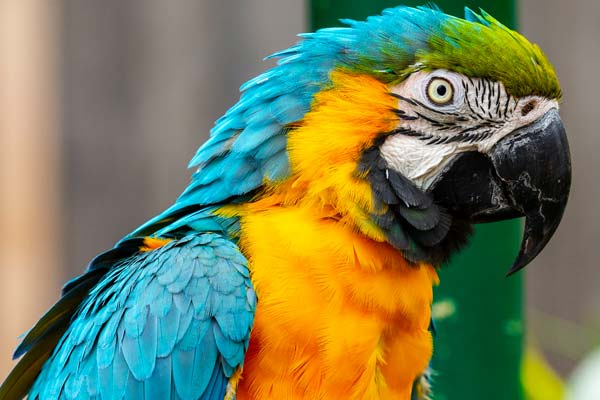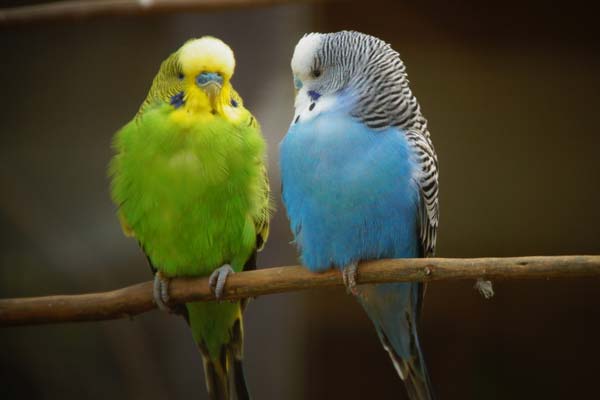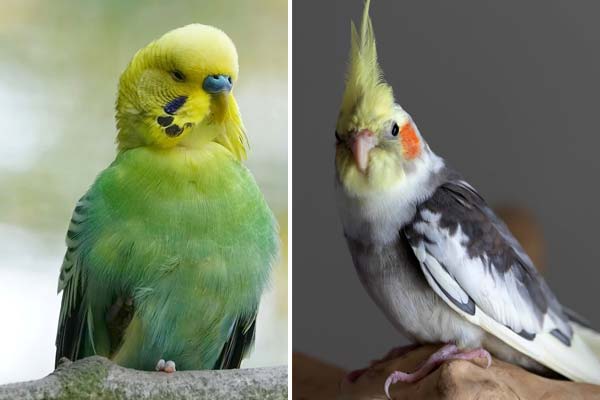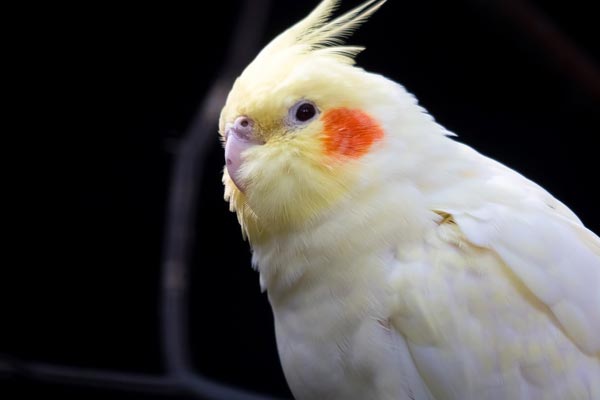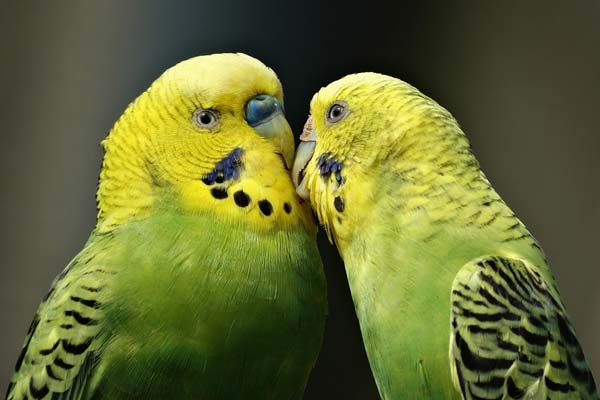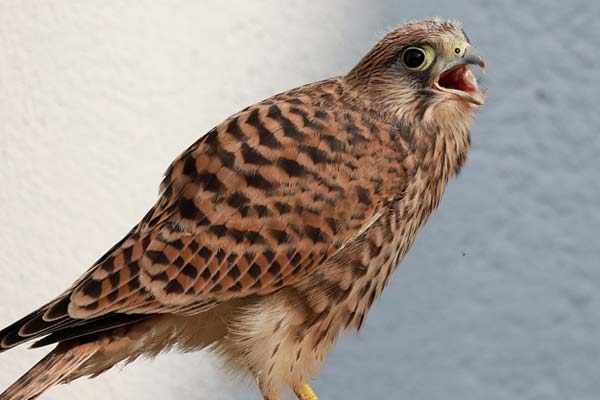How to Clean a Parrot’s Nostrils: A Step-by-Step Guide
Parrots, as intelligent and social birds, make wonderful pets. But, like all pets, they need proper care for their well-being.
One aspect of parrot care that is often overlooked is cleaning their nostrils. Parrots have small, delicate nostrils that can quickly become clogged with dirt, dust, and debris.
Understanding common causes for clogs in parrot nostrils is vital to prevent infections and other health issues.
Common reasons for clogged nostrils in parrots include bacterial or fungal infections, scaly-faced mites, and vitamin A deficiency. Parrots exposed to dusty or dirty environments are also at risk of developing clogged nostrils.
Gently cleaning a parrot’s nostrils demands patience, care, and proper tools to prevent any discomfort or harm to the bird.
Common Causes for Clogs in Parrot Nostrils
Parrots are sensitive creatures that require proper care and attention to maintain their health. One of the most common health issues that parrots face is clogged nostrils.
If not addressed promptly, clogged nostrils can lead to serious respiratory problems and even death. Here are some of the common causes for clogs in parrot nostrils:
Infection
Parrots are susceptible to bacterial or fungal infections in their nostrils, which can lead to clogs. Infections can be caused by a vitamin A deficiency, which manifests as white spots around the bird’s nose and mouth. Infections can cause inflammation, swelling, and discharge from the nostrils if left untreated.
Mold Allergies
Mold allergies can also cause clogs in parrot nostrils. Mold spores can irritate the bird’s respiratory system, leading to inflammation and clogs. Keeping the parrot’s environment clean and dry prevents mold growth.
Mites
Mites are microscopic parasites that can infest a parrot’s nostrils, causing irritation and inflammation. Mites feed off the bird’s blood and can cause the skin of the nostrils to become crusty and deformed if left untreated.
Improper Humidity
Parrots require a specific level of humidity to maintain healthy respiratory systems. If the air is too dry, it can cause the nostrils to become dry and clogged.
On the other hand, if the air is too humid, it can promote mold and bacteria growth, leading to respiratory problems.
Heavy Chemicals
Parrots are sensitive to chemicals, and exposure to heavy chemicals can cause clogs in their nostrils. It is essential to keep the bird’s environment free of harsh chemicals and avoid using perfumes, air fresheners, and other scented products that irritate their respiratory systems.
How to Clean Your Parrot’s Nostrils
Keeping your parrot’s nostrils clean is essential to maintaining overall health and well-being. A few effective methods to clean a parrot’s nostrils include nose rinse, handkerchief, steam, and spray bottle.
Method 1: Nose Rinse
A nose rinse is a simple and effective way to clean your parrot’s nostrils. To perform this method, follow these steps:
- Fill a small bowl with lukewarm water.
- Wet a cotton swab and gently place it into one nostril.
- Slowly swirl the cotton swab around in the nostril to loosen any debris.
- Gently remove the cotton swab and repeat the process with the other nostril.
- Dry your parrot’s nostrils with a clean, dry cotton swab.
Method 2: Handkerchief
Using a handkerchief is another effective way to clean your parrot’s nostrils. Here’s how to do it:
- Wet the corner of a clean handkerchief with lukewarm water.
- Gently insert the wet corner of the handkerchief into one nostril.
- Twist the handkerchief around in the nostril to loosen any debris.
- Gently remove the handkerchief and repeat the process with the other nostril.
- Use a dry corner of the handkerchief to dry your parrot’s nostrils.
Other Effective Methods
Aside from nose rinse and handkerchief, you can also use steam or a spray bottle to clean your parrot’s nostrils. Here’s how to use these methods:
- Steam: Boil water, then remove from heat. Position the parrot’s cage over the steam to clear the nostrils.
- Spray Bottle: Mist your parrot’s nostrils with lukewarm water to loosen debris.
Never use harsh chemicals or soaps on your parrot’s nostrils. If you see signs of infection or respiratory distress, consult a veterinarian for proper diagnosis and treatment.
Preventative Measures for Parrot Nostril Health
Maintaining good hygiene practices is crucial for keeping a parrot’s nostrils healthy.
Here are some preventative measures that can help prevent infections and other issues:
Shower with Your Bird and Get a Humidifier
Parrots must be kept clean and humid to prevent dry nostrils. One way to achieve this is by showering with your bird. This not only helps to keep the feathers clean but also helps to moisten the nostrils.
If showering with your bird is not possible, consider getting a humidifier for the room where the bird is kept. This maintains healthy air humidity levels.
Misting Your Bird and Providing a Healthy Diet
To maintain healthy nostrils in your bird, regularly mist it with clean water using a spray bottle or misting system.
A well-balanced diet, abundant in vitamins and minerals (especially vitamin A), is crucial to prevent infections. Offer your parrot fresh fruits, vegetables, nuts, and seeds for optimal nostril health.
Common Parrot Nostril Problems Explained
Parrots are prone to nasal problems, which, if untreated, can cause discomfort and severe health issues.
Here are some common nostril problems that parrots may experience:
Crusty and Blocked Nares
Parrots with crusty and blocked nares may have a respiratory infection or an allergy. The crusty material can be yellow or green, and it can cause the nostrils to become blocked. If the blockage is severe, the parrot may have difficulty breathing.
Identifying the underlying cause of treating crusty and blocked nares is crucial. The allergen should be removed from the bird’s environment if it is an allergy.
The bird may need antibiotics or antifungal medication if it is a respiratory infection. Sometimes, the veterinarian may need to clean the nostrils to remove the crusty material.
Nasal Discharge and Nosebleeds
Parrots with nasal discharge and nosebleeds may have a respiratory infection or an injury to the nares. The discharge can be clear or colored, and it can be accompanied by sneezing or coughing. Nosebleeds may result from nares trauma or respiratory infection.
Identifying the underlying cause to treat nasal discharge and nosebleeds is crucial. The bird may need antibiotics or antifungal medication if it is a respiratory infection.
If it is an injury, the bird may need to be treated for it and given pain medication. Sometimes, the veterinarian may need to clean the nostrils to remove the discharge.
How to Keep the Nostrils of Birds Healthy
Keeping a clean environment is crucial for a bird’s nostril health.
Here are some tips to help keep your bird’s nostrils healthy:
Clean the Birdcage Regularly
Regular cleaning of the birdcage is essential to keep the air clean and free from dust and debris. A dirty birdcage can lead to respiratory problems and other health issues. The following table provides some tips on how to clean a birdcage:
| Cleaning Task | Frequency |
|---|---|
| Change food and water | Daily |
| Clean perches and toys | Weekly |
| Replace bedding | Weekly |
| Deep clean cage | Monthly |
Use a Humidifier
A proper humidifier is essential to maintain moist air and prevent dry nostrils. Avoid ultrasonic humidifiers, which can produce harmful white dust that birds may inhale. Opt for warm or cool-mist evaporative humidifiers with larger moisture droplets instead.
Provide a Healthy Diet
A nutrient-rich diet comprising fruits and vegetables is crucial for a bird’s overall health, including its nostrils. It strengthens the immune system and guards against infections.
Below are some guidelines to ensure a nutritious diet:
- Provide a wide selection of vegetables and fresh fruits
- Provide a high-quality birdseed mix
- Avoid feeding your bird fatty or sugary foods
- Offer clean water at all times
Conclusion
Parrots make excellent pets due to their intelligence and sociability, but their care requires attention to every aspect. One often overlooked aspect is cleaning their delicate nostrils, which can get clogged with dirt, dust, and debris.
Common causes of clogs include infections, mites, and mold allergies. Regular cleaning is vital to prevent respiratory issues and discomfort.
Use gentle methods like nose rinses and handkerchiefs, and maintain a clean and humid environment. A well-balanced diet with fruits and vegetables supports their overall health, including nostril health.

